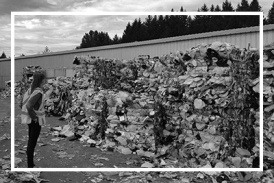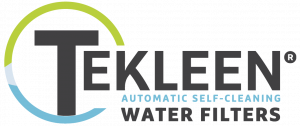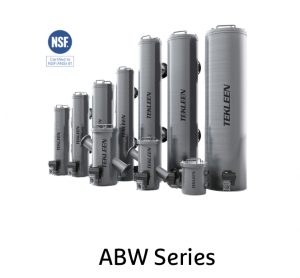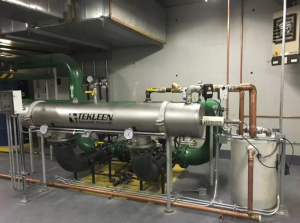Tekleen Automatic Filters Highlights Industrial Water Reuse as Critical to Sustainable Manufacturing Transformation
Innovative water reuse technologies reduce manufacturing water consumption by up to 60%, offering significant environmental and economic benefits.
Water plays a vital role in sectors such as pharmaceuticals, food and beverage, petrochemicals, textiles, automotive, and semiconductor production. However, this heavy reliance on water also presents ongoing challenges: resource scarcity, rising utility costs, regulatory pressures, and sustainability demands. Industrial water reuse directly addresses these concerns by recycling wastewater back into operational use—minimizing waste, lowering costs, and preserving natural resources.
According to the Environmental Protection Agency, industrial water reuse can reduce total water consumption by up to 60%. These savings are not just environmental—they’re also financial. The American Water Works Association reports that manufacturers adopting water reuse strategies experience water-related cost reductions between 30% and 70%.
Tekleen’s advanced water filtration systems enable manufacturers to adopt water reuse at scale through reliable, efficient, and cost-effective technologies. The company’s automatic self-cleaning filters offer precision filtration down to 2 microns, protecting sensitive systems while maintaining continuous operation through automated backwash cycles completed in just 10 seconds. Built with industrial-grade stainless steel and high-performance polymers, Tekleen filters are engineered to withstand the toughest environments while reducing backwash water consumption by up to 90%.
“Water reuse isn’t a niche concern anymore—it’s quickly becoming a competitive advantage,” said Nagui Elyas, CEO of Tekleen. “We’re helping manufacturers meet regulatory demands and sustainability goals while also driving real operational savings. The future of manufacturing depends on smart water management, and we’re proud to be a catalyst for that change.”
Tekleen’s impact is already being felt across industries. At John Wayne Airport, Tekleen filters improved cooling system efficiency while minimizing maintenance and water waste. At Sierra Nevada Brewing Company, filters installed across irrigation, cooling towers, and reverse osmosis pre-filtration helped reduce labor, enhance performance, and cut costs—supporting the company’s larger sustainability mission.
With global regulations tightening around water use and discharge, the need for advanced water reuse strategies continues to grow. Tekleen remains committed to helping manufacturers embrace responsible water practices—ensuring long-term resilience, environmental stewardship, and industry leadership.
About Tekleen
Tekleen is the leading manufacturer of automatic self-cleaning water filters, serving industries worldwide with sustainable and highly efficient filtration solutions. Based in Santa Fe Springs, California, Tekleen’s technologies are trusted across industrial, municipal, and agricultural sectors for their reliability, durability, and performance.
For more information, visit www.tekleen.com or contact filters@tekleen.com.
Hani Philobbos
Tekleen Water Filters
+1 949-767-6755
email us here
Visit us on social media:
LinkedIn
YouTube
Legal Disclaimer:
EIN Presswire provides this news content "as is" without warranty of any kind. We do not accept any responsibility or liability for the accuracy, content, images, videos, licenses, completeness, legality, or reliability of the information contained in this article. If you have any complaints or copyright issues related to this article, kindly contact the author above.
Huntington’s Disease: Charting a New Path with Disease-Modifying Therapies and Strategic Innovation
Paramount Wellness Retreat Addresses the Link Between ADHD and Addiction with Specialized Dual Diagnosis Treatment
Aspire Systems wins Silver Stevie® Award in 2025 American Business Awards®
Kalendarium
Więcej ważnych informacji
 Jedynka Newserii
Jedynka Newserii

 Jedynka Newserii
Jedynka Newserii

Handel

Ze względu na różnice w cenach surowce wtórne przegrywają z pierwotnymi. To powoduje problemy branży recyklingowej
Rozporządzenie PPWR stawia ambitne cele w zakresie wykorzystania recyklatów w poszczególnych rodzajach opakowań. To będzie oznaczało wzrost popytu na materiały wtórne pochodzące z recyklingu. Obecnie problemy branży recyklingu mogą spowodować, że popyt będzie zaspokajany głównie przez import. Dziś do dobrowolnego wykorzystania recyklatów nie zachęcają przede wszystkim ceny – surowiec pierwotny można kupić taniej niż ten z recyklingu.
Przemysł spożywczy
Rośnie presja konkurencyjna na unijne rolnictwo. Bez rekompensat sytuacja rolników może się pogarszać

Rolnictwo i żywność, w tym rybołówstwo, są sektorami strategicznymi dla UE. System rolno-spożywczy, oparty na jednolitym rynku europejskim, wytwarza ponad 900 mld euro wartości dodanej. Jego konkurencyjność stoi jednak przed wieloma wyzwaniami – to przede wszystkim eksport z Ukrainy i niedługo także z krajów Mercosur, a także presja związana z oczekiwaniami konsumentów i Zielonym Ładem. Bez rekompensat rolnikom może być trudno tym wyzwaniom sprostać.
Transport
Infrastruktury ładowania elektryków przybywa w szybkim tempie. Inwestorzy jednak napotykają szereg barier

Liczba punktów ładowania samochodów elektrycznych wynosi dziś ok. 10 tys., a tempo wzrostu wynosi ok. 50 proc. r/r. Dynamika ta przez wiele miesięcy była wyższa niż wyniki samego rynku samochodów elektrycznych, na które w poprzednim roku wpływało zawieszenie rządowych dopłat do zakupu elektryka. Pierwszy kwartał br. zamknął się 22-proc. wzrostem liczby rejestracji w ujęciu rocznym, ale kwiecień przyniósł już wyraźne odbicie – o 100 proc.
Partner serwisu
Szkolenia

Akademia Newserii
Akademia Newserii to projekt, w ramach którego najlepsi polscy dziennikarze biznesowi, giełdowi oraz lifestylowi, a także szkoleniowcy z wieloletnim doświadczeniem dzielą się swoją wiedzą nt. pracy z mediami.











.gif)

 |
| |
| |
|